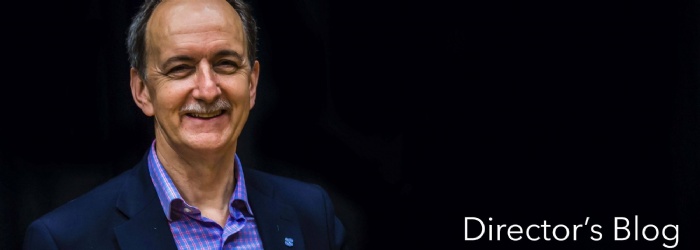Workload is on the agenda again, here’s what we’ve done so far!

The Trust was keen to involve all staff (teaching and non-teaching) in the Workload Review
In summer 2016, we decided to try and address a growing perception that staff workloads were increasingly challenging and were likely to lead to additional stress, anxiety and eventually colleagues leaving their roles.
The Trust was keen to involve all staff (teaching and non-teaching) in the Workload Review so we invited all colleagues to apply to join a Trust Workload Review Group. Approximately 20 staff from across our academies volunteered and were either drawn into the working group or acted as a challenge group for the recommendations that followed.
A series of recommendations (must be implemented) and suggestions (needed to be considered) for each academy were included in a report that was approved by the Trust Board and published in late 2016.
A considerable amount of time has passed since that report was issued, and I recently began to reflect on the recommendations and the impact that it had on our academies. I was pleased to see that our academies had gone much further than the Workload Reports’ recommendations.
However, when things change gradually we have a tendency not to notice them and this was reflected in the 2017 Trust staff survey results. The Trust and its academies had done a lot but it wasn’t all being noticed by our staff.
So, I want to summarise just a few of the things that our academies have done, things they are doing and some ideas we have for improving our work further.
Written reports
All of our academies have now removed the need for written reports. This is a significant reduction in work for teaching staff, who can now focus on other areas of work.
Many of our academies will now share only the pertinent data with parents with a brief template explanation of what that data means. Which brings me onto the next point.
Data collection
One of our key recommendations in the report was for academies to reduce the number of data collection points. We heard from both teaching and support staff that data collection – whether it be progress, attainment, behaviour or other pastoral reports – were the most time consuming tasks. Our academies now have a maximum of three data collection points in a year (this increases to a maximum of four in Year 11). Feedback from staff is that this has been one of the most significant improvements.
Emails, emails and emails
I have a terrible habit. I send emails out of hours. I never expect people to answer them immediately but I think some people do feel obliged to respond. I’m working hard to correct that. I’ve tried to schedule my emails – but that was a bit of a technical failure. Feedback from schools suggested this is a problem across our academies. So a number of them have tried to embargo emails outside of working hours with mixed results. Whilst it has worked in some schools others have seen staff pine for the days of a 5:35pm email so they didn’t have to deal with it the next day. I also heard from a hard pressed single parent who wanted the flex to deal with her work at a time in the evening that suited her personal needs.
We’ve also seen schools produce etiquette guidelines to ensure that emails are written in such a way that they don’t always require a response. And many schools have blocked the ‘all staff’ button to ensure information is only sent to those that need it – we need to make sure that staff inboxes don’t get cluttered. What we’ve seen developing are new digital approaches to tackle these issues.
Digital footsteps
I can often feel like an industrious email machine but I know it’s important to have the information to hand and you can’t be a co-operator without sharing and working together.
Our academies have embraced digital technologies to reduce email traffic but without any loss of that co-operation. We’ve seen intranets, Google ‘sites’ and even collaborative Google Docs to share bulletins and events. A focus on reducing paper has also seen schools moving things onto the intranet.
It isn’t just email that has seen a new digital approach to reduce the workload. Our academies have invested in SISRA, O’Track and other programmes to help reduce the need for staff to ‘crunch’ and analyse performance data.
Planning, marking and PPA
Academies have also driven a focus on reducing planning and marking. Not the quality or effectiveness, but the processes. Most have reviewed their marking policies to focus more on pupil/student reflection rather than staff marking. Or they have increased staff PPA (Planning, Preparation and Assessment) time, reducing staff teaching commitments. This isn’t possible across all academies for various reasons and that’s where we have seen some of our most creative responses to the report.
Academies have arranged CPD at all levels focussing on time management. We’ve also seen them focus on therapeutic support for staff. Holding ‘Wellbeing weeks’ where they shine a spotlight on staff wellbeing and developing their ‘mental health first aid’ and stress risk assessments.
I don’t profess that we have solved the workload concerns that led to us producing the report. But we’re a lot closer than we were three years ago and I look to our staff to take this forward. I see it on the agendas at staff meetings. Schools holding staff drop-in sessions. New more relaxing staffroom spaces. And we’re talking about mental health now more than we ever have. Through co-operation we’ll see even more creative and impactful ways to reduce workload.
The job is never finished though. So, if you have more ideas as to how your academy might be able to reduce workload without it impairing on the children please let your line manager or headteacher, Head of school or Principal know.
Frank Norris